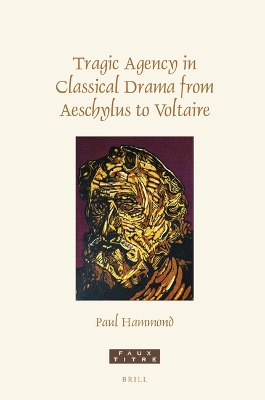Faux Titre
1 primary work
Book 451
Tragic Agency in Classical Drama from Aeschylus to Voltaire
by Paul Hammond
Published 18 October 2021
Are we free agents? This perennial question is addressed by tragedy when it dramatizes the struggle of individuals with supernatural forces, or maps the inner conflict of a mind divided against itself.
The first part of this book follows the adaptations of four myths as they migrate from classical Greek tragedy to Seneca and on to seventeenth-century France: the stories of Agamemnon, Oedipus, Medea, and Phaedra. Detailed linguistic analysis charts the playwrights' contrasting assumptions about agency and autonomy. In the second part, six plays by Corneille and Racine are discussed to show how the problem of agency and free will is explored in scenarios which show protagonists who are in thrall to their past, to their rulers, or to their own ideals.
The first part of this book follows the adaptations of four myths as they migrate from classical Greek tragedy to Seneca and on to seventeenth-century France: the stories of Agamemnon, Oedipus, Medea, and Phaedra. Detailed linguistic analysis charts the playwrights' contrasting assumptions about agency and autonomy. In the second part, six plays by Corneille and Racine are discussed to show how the problem of agency and free will is explored in scenarios which show protagonists who are in thrall to their past, to their rulers, or to their own ideals.
